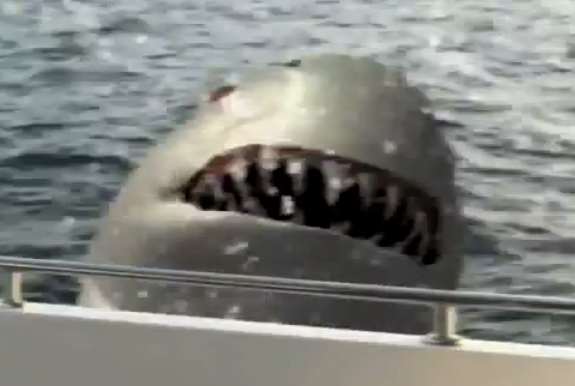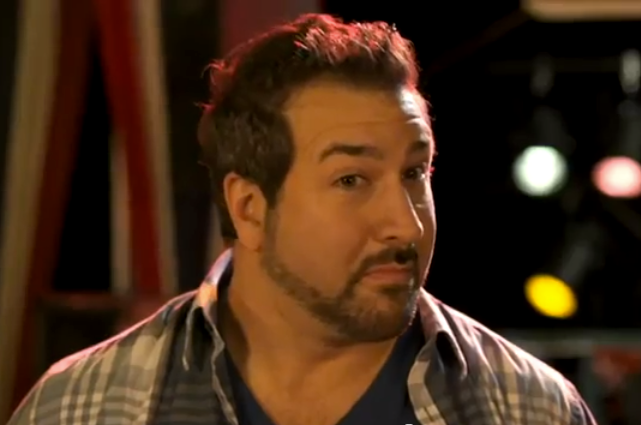
The Graduate, Rebel Without a Cause, Snakes on a Plane.
Every so often, our civilization is blessed with a cinematic achievement that rests alongside a select few previous cultural benchmarks in our hearts as well as our minds. Without hesitation, I can say that Jersey Shore Shark Attack is such a film.
The SyFy (sic) network movie premiered on June 9 at 9 p.m. to the vast intersection of media consumers who delight in shark films as well as Guido-vs.-yacht-club-types narratives.
I had been feverishly anticipating the release of this film for many months, but a small part of me worried that it might compromise its integrity and vast potential by copying the cultural toxic waste that is the MTV show Jersey Shore. Fortunately, when the film began and introduced a new cast of characters whom I had previously never heard of named The Complication, Nooki, J-Moni, Donnie and Paulie Balzac, my fears were eased. Jersey Shore Shark Attack is a work that exists in its own universe with its own distinct identity.
Director John Shepphird took upon himself the difficult task of capturing the jouissance that exists in the atmosphere of the Jersey Shore, while remaining loyal to the very sinister and real danger that white-finned killer albino sharks truly present. Now I know what you're thinking: You just said the sharks were both white-finned and albino; how white were they, exactly?
Very white.
The sharks themselves were so expertly done that, more than a few times during the film, I cowered in fear in the corner of my living room screaming while drenched in sweat and tears, only to be reminded that I was in fact not at the ocean but merely transported there in my mind as a result of experiencing cinematic expertise in its highest form.

Fear not friends, these sharks were actually created by an electronic computer!
Now with a big budget film such as this, there's always the risk of losing sight of the conflict and spiritual journey that the characters embark on while focusing on the meticulously crafted antagonists. But Jersey Shore Shark Attack manages to flawlessly balance several compelling narratives at once. Will Nooki and The Complication ever reconcile their relationship, which was broken as a result of The Complication's refusal to give her his chain? Will uppity yuppie Bradford ever learn to respect and embrace the Guido way of life? Why don't people stop going in the water?
This film appeared to be heavily influenced by the early 20th-century surrealist movement, specifically the 1929 French short film directed by Luis Buñuel titled Un Chien Andalou. It also displayed some hints of Soviet filmmaker Sergei Eisenstein's earlier works in relation to class conflict, but I hate to give away spoilers.
Like many others, when I first heard that Joey Fatone was going to be in this film, I wondered if we were going to see the Joey we loved from Beethoven's Big Break or the Joey we adored from Karaoke Battle USA. Well Fatoniacs, I'm happy to say that in Jersey Shore Shark Attack, we get both, including a side we've never seen from one of the greatest triple threats of our generation -- the 'getting eaten by a got damn shark' side.
His performance was so indicative of a thespian who respects the craft that when Joey died after only one minute and 19 seconds on camera (I timed it), I felt like a piece of my innocence had also been eaten by a leaping white-finned killer albino shark in front of roughly nine extras posing as Joey Fatone fans. It's difficult -- almost unfair -- to choose, but this scene may very well stand alone as the work's most compelling Oscar moment.

Teen heart-throb Joey Fatone took some time out of his busy schedule to be in the film.
Despite Fatone's absence, the film had plenty of star power to endure. Paul Sorvino (Goodfellas), Tony Sirico (The Soprano's) and Jack Scalia (Kraken: Tentacles of the Deep) all play career-defining roles and should be heavily considered come award season for their excellence as supporting actors.
Now I hate to be that guy, but I did have a single critique of the film (that was in fact echoed on IMDB): How is Nicholas Cage not in this movie?
It's hard to imagine a single role in the film he wouldn't have made his own, including playing Joey Fatone. I'm not sure if there was a scuffle during contract negotiations, but it seems this was an opportunity missed by both sides.
But at the end of the day, this is but a paltry complaint in what was truly an American classic. Ultimately this film and its message are best summed up by a single iconic line that was uttered by The Complication with a poise and conviction that calls to mind Gregory Peck: "I hate sharks [shoots machine gun at sharks]!"
The views expressed in this piece are my own and do not represent those of the Huffington Post. Only see this if you like terrible movies.